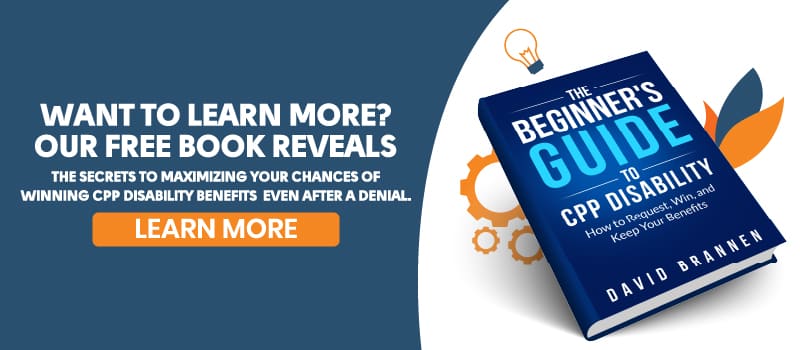Imagine building a career in sales, thriving in a fast-paced, demanding environment. For Helen Smith, being a sales consultant wasn’t just a job—it was her passion. But everything changed in 2010 when she began experiencing a host of debilitating symptoms: cognitive impairment, chronic pain, muscle weakness, and fatigue. Despite her determination to push through, her health forced her to leave work in February of that year.
Helen’s road to recovery was fraught with challenges. Multiple medical tests yielded no consensus on a diagnosis, and a move to a new province made matters worse. New doctors were skeptical of her symptoms, questioning her credibility instead of providing support. This skepticism would come to haunt her as she began the arduous process of applying for disability benefits.
When the system says no
Helen’s first attempt to secure disability benefits ended in rejection. Service Canada leaned heavily on the negative opinions of her new doctors, claiming there wasn’t enough evidence to support her claim. Undeterred, Helen appealed on her own—but once again, her case was denied. The lack of a definitive medical diagnosis and damaging comments from her doctors proved too significant to overcome.
Feeling abandoned by the system, Helen turned to her husband for support. Together, they decided to take her case to the Social Security Tribunal. As her hearing date approached, Helen became increasingly anxious. She realized she was in over her head and needed professional help.
That’s when her husband discovered Resolute Legal and ordered The Beginner’s Guide to CPP Disability.
A last-minute lifeline
Helen contacted Resolute Legal just weeks before her hearing. By then, the deadline to submit new evidence had passed—a situation that often severely limits our ability to assist. Despite this, we saw potential in Helen’s case.
Upon reviewing her file, it was clear Helen had been treated unfairly. Her previous appeals were poorly prepared, missing crucial medical records and evidence. However, Helen’s recent consultations with two new doctors resulted in more supportive medical opinions. Unfortunately, these reports hadn’t been submitted to the Tribunal.
Time was not on our side, but we moved quickly. We requested the records from Helen’s new doctors and prepared for every possibility. When the records finally arrived—just two days before the hearing—the judge refused to admit them due to the late submission.
Thankfully, we anticipated this roadblock and arranged for one of Helen’s doctors to testify during the hearing. The testimony provided critical insights into Helen’s condition, ultimately tipping the scales in her favour.
Turning setbacks into victories
Helen’s case presented another significant challenge: the timing of her disability. To qualify for CPP disability benefits, Helen needed to prove she was disabled as of December 2009—not 2015, as her initial appeal suggested.
We shifted the narrative, focusing on evidence that demonstrated Helen’s total disability by the required date. While Helen continued working until February 2010, we successfully argued that her symptoms rendered her unable to meet the demands of her job as of late 2009.
Despite the tight timeline and procedural hurdles, Helen’s case was a success. The Tribunal ruled in her favour, granting her the disability benefits she so desperately needed.
Lessons from Helen’s case
There are a few learning opportunities from this case.
Don’t wait until the last minute to hire a disability lawyer. We won this case by the skin of our teeth. We could have won this case much more easily if we had been involved earlier on when we could have gathered the right medical information and prepared written submissions to Service Canada and the Tribunal Judge. We were able to win the case by getting the doctor to testify at the hearing and by re-focusing the case on proving disability back in 2009 rather than just in 2015. I have no doubt that Helen would have lost this case had she not hired us and made these changes to her appeal strategy.
Don’t use a bare minimum approach to your appeals. Helen made the classic mistake of taking what we call the “bare minimum” approach. This means she provided very little evidence or medical records in support of her case. She relied too heavily on her own written submissions and testimony. This case was almost lost because she did not have the right medical records provided as part of her appeal.
Make sure you know “when” you have to prove you were disabled. Helen was focused on proving she was disabled in 2015. This was a mistake because she actually had to prove she was disabled as of December 2009! This is a very common mistake that people make when handling their own appeals. We had to totally change how her case was presented.
At Resolute Legal, we share stories like Helen’s to help others understand what it takes to succeed in a disability claim. While every case is unique, the principles of preparation, strategy, and persistence apply universally.
If you’re facing a disability claim denial or preparing for an appeal, don’t wait until it’s too late. Contact us today to discuss your case and explore how we can help.
** Names have been changed to protect the privacy of our clients**
Schedule a free consultation
Ready to take control of your disability claim? Book a free consultation with Resolute Legal today. Let us guide you through the complexities of the process so you can focus on what matters most—your health and well-being.
Download our free book
Click the link below to access The Beginner’s Guide to CPP Disability and learn the secrets to winning your disability appeal.

